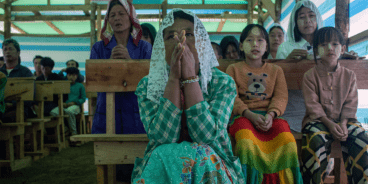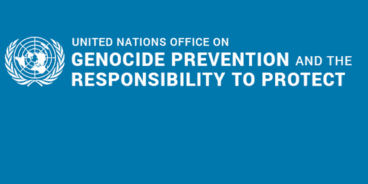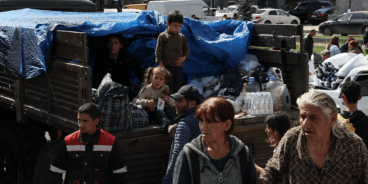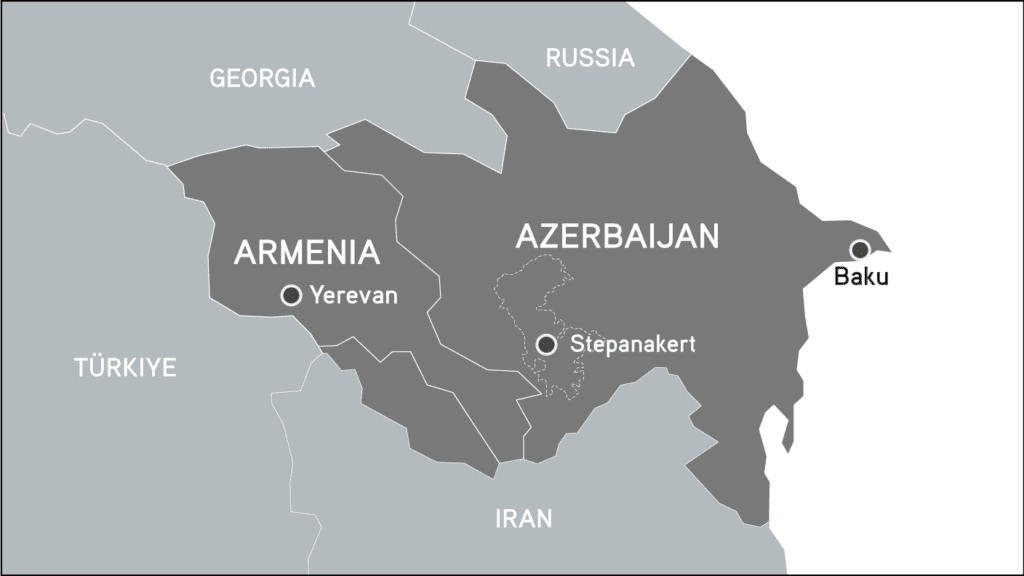
Nagorno-Karabakh (Armenia/Azerbaijan)
Following a months-long blockade and a brief military operation by Azerbaijan, the majority of the ethnic Armenian population in Nagorno-Karabakh fled. Populations from Nagorno-Karabakh remain at risk of further atrocity crimes, including the potential destruction of their cultural heritage.
BACKGROUND
Nagorno-Karabakh is a long-disputed enclave in Azerbaijan that had been primarily populated by ethnic Armenians and led by Armenian de-facto authorities since December 1991. On 19 September 2023 Azerbaijani armed forces launched a military operation in Nagorno-Karabakh under the pretense of “anti-terror measures” and regaining regional control of the territory. Over a 24-hour period Azerbaijani forces launched attacks using heavy artillery, drones and mortars, killing hundreds of people, including some civilians, and reportedly damaging civilian infrastructure. The escalation of hostilities ended on 20 September with a ceasefire that included provisions for the Armenian de-facto authorities in Nagorno-Karabakh to disband and disarm its local defense structures.
The cessation of hostilities was followed by a decree signed by the President of Nagorno-Karabakh, Samvel Shahramanyan, to fully dissolve Nagorno-Karabakh’s ministries and other agencies by 1 January 2024. The decree also called for the local population to “familiarize themselves with the conditions of reintegration presented by the Republic of Azerbaijan” and make “an independent and individual decision” on whether to stay or leave the region. Following the cessation of hostilities, over 88,700 refugees fled to Armenia in less than a week, according to the UN Refugee Agency (UNHCR). As of 16 October, a reported 101,848 people, including 30,000 children, had fled, constituting more than 80 percent of the estimated 120,000 inhabitants of Nagorno-Karabakh. More than 170 people were killed and nearly 300 injured during the mass exodus when a gas station exploded on 26 September. The cause of the blast remains unclear.
The military operation was preceded by a blockade of the Lachin corridor, the sole road connecting Nagorno-Karabakh with Armenia, that had been imposed since 12 December 2022. The blockade began after Azerbaijani environmental activists, purportedly supported by the country’s authorities, blocked the corridor in protest of alleged mineral exploitation. Azerbaijani authorities formalized the blockade by establishing a border point at the entrance to the corridor in late April 2023. Beginning in mid-July, Azerbaijani authorities intentionally and unlawfully disrupted the transport of humanitarian assistance into the enclave, in violation of International Humanitarian Law (IHL). The blockade deprived the population of Nagorno-Karabakh of life-saving resources, such as food, medicine, electricity and fuel, precipitating a humanitarian crisis. Transport through the Lachin Corridor had resumed on 18 September, one day prior to Azerbaijan’s military operation.
There is a long history of armed clashes between Armenia and Azerbaijan for control of Nagorno-Karabakh, including a war in the early 1990s that resulted in an estimated 30,000 people killed and 1 million displaced. Despite a 1994 ceasefire agreement, sporadic clashes have continued along the border of Nagorno-Karabakh for nearly 30 years. From 27 September to 9 November 2020 the situation escalated as forces from both sides reportedly used illegal weapons, including cluster munitions, and shelled civilian areas, damaging or destroying homes and essential infrastructure, perpetrating attacks that may amount to war crimes. Hundreds of civilians were reportedly killed or wounded while tens of thousands fled.
RECENT DEVELOPMENTS
Amidst the mass exodus, Azerbaijan arbitrarily arrested notable public figures and former de facto leaders of Nagorno-Karabakh, including former presidents Arayik Harutyunyan, Bako Sahakyan and Arkadi Ghukasyan, ex-parliamentary speaker David Ishkhanyan and former State Minister Ruben Vardanyan. Azerbaijan authorities have accused the detainees of serious abuses, including war crimes, and sentenced them to four months of pretrial detention.
On 1 October, at the invitation of Azerbaijan, the UN sent a mission to Nagorno-Karabakh – its first official visit to the area in approximately 30 years – to assess the situation and identify humanitarian needs. The team, which included representatives from the UN Office for the Coordination of Humanitarian Affairs, UNHCR, World Health Organization and others, found signs of rapid flight, noting that it was difficult to determine whether the local population intended to return.
Armenia has pursued several international legal actions to respond to the ongoing crisis. On 29 September Armenia requested that the International Court of Justice order Azerbaijan to uphold the international human rights obligations codified under the Convention on the Elimination of All Forms of Racial Discrimination, to which it is a state party. On 3 October Armenia’s parliament voted to ratify the Rome Statute of the International Criminal Court. On 26 October Armenia adopted a decree granting refugee status to over 100,000 people who fled Nagorno-Karabakh.
The UN High Commissioner for Human Rights and Special Adviser on the Prevention of Genocide have both issued statements calling for independent and transparent investigations into all reported violations of human rights and IHL to ensure accountability and redress for victims. The High Commissioner and Special Adviser emphasized the importance of ensuring that the rights of those displaced are fully upheld, including ensuring that internally displaced persons and refugees can exercise their right to return in safety and dignity.
ANALYSIS
The recent escalation of hostilities, coupled with the life-threatening living conditions under the blockade, hastened mass displacement. The long history of tensions between Armenia and Azerbaijan and impunity for past abuses, including the forced displacement of nearly the entire ethnic populations from territories controlled by the other side, has fomented widespread mistrust and undermined the guarantees offered by Azerbaijani authorities to ethnic Armenians regarding their safety. The lack of genuine commitment to past peace agreements on behalf of all parties perpetuates suffering, creating an environment conducive to the commission of atrocity crimes.
Despite the Azerbaijani authorities’ assurances of the protection of cultural and religious monuments, freedom of religion and the right to use native language, its territorial reclamation of the enclave and the subsequent mass exodus of the local population may undermine the cultural continuity of the ethnic Armenian population.
RISK ASSESSMENT
-
-
- Incitement to violence against those protected under IHL to spread terror, demoralize communities, show military strength and forcibly displace civilians.
- Strategic or military interests based on the protection or seizure of territory.
- Decades of serious violations of International Human Rights Law (IHRL) and IHL, as well as impunity for all parties to the conflict.
- Ethnic tensions between Armenians and Azerbaijanis, fueling cycles of violence and lack of genuine commitment to peace agreements.
- History of atrocity crimes perpetrated against the ethnic Armenian population.
-
NECESSARY ACTION
As Azerbaijan assumes control over Nagorno-Karabakh, it must fully comply with all its obligations under IHL and IHRL, including to respect and protect the rights of ethnic minorities within its territory and refrain from destroying cultural heritage. Any plans for reintegration must guarantee the security and human rights of the ethnic Armenian population, including through measures to ensure the right to safe return for those who have fled and a commitment to international rights monitoring.
Both Armenian and Azerbaijan leaders must commit to further peace dialogues with the aim of implementing a strategy to prevent further military escalation and violence, confront disputes over territorial claims and promote sustainable peace for the region.
It is essential to provide psychosocial support and emergency assistance to refugees who fled violence in Nagorno-Karabakh, particularly vulnerable and less mobile groups. Azerbaijan must ensure full humanitarian access for populations remaining in the region and cease the arbitrary detention of prominent figures.
Related Content


Statement by Ms. Alice Wairimu Nderitu, Special Adviser on the Prevention of Genocide, on the situation in Armenia and Azerbaijan


